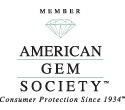How to Grade Opal Patterns and Colors
October 29th, 2009 by James L. Sweaney, CGA, FGA. GG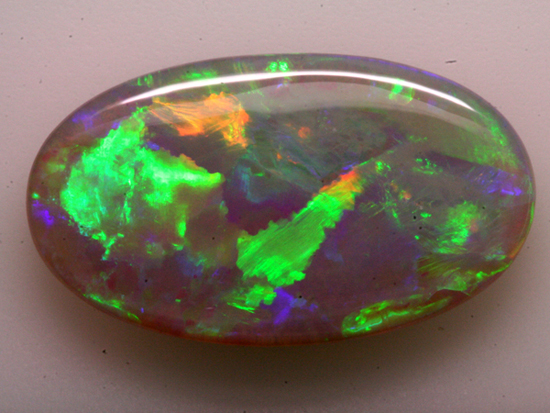
Flash Patterns in Lightning Ridge Opal, I-14753
What makes opal such a fascinating gemstone? When asked what opal looks like, most people would probably first think of the typical white base opal with little sprinkles and twinkles of color.
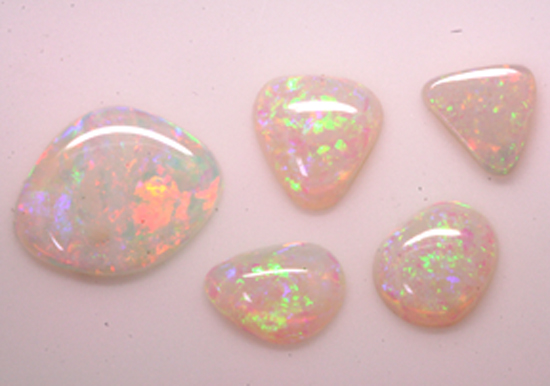
White Opal with Pinfire/Chaff Pattern Play of Color
This unique display of color is a phenomenon correctly known as play of color, not fire as it is sometimes referred to. Any opal with play of color is commonly called precious opal .
The truly amazing thing about precious opal is the rich variety of patterns and color groupings we see. Within the gem community, we classify these patterns with descriptive terms, the three basic groups of which are Pinfire, Flash, and Harlequin. Many precious opals display several patterns.
The most common pattern is called pinfire, also referred to as chaff, twinkle, and straw, often seen in white opal and in opal fossils, such as this opalized clam shell.
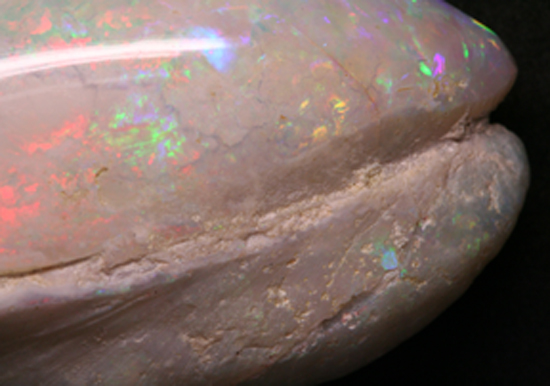
Pinfire in Opalized Clam Fossil
Other types of precious opal, such as black opal and boulder opal, display their play of color against a dark background. Since the appearance is much more dramatic, these types of opal are more sought after.
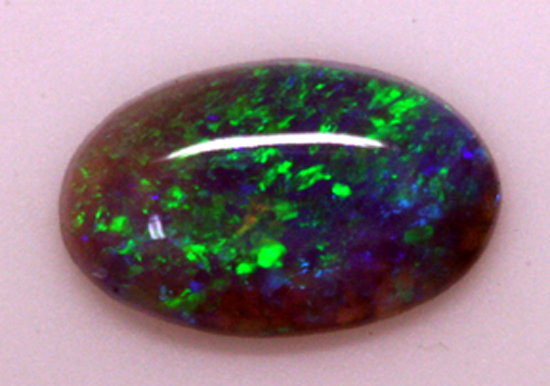
Lightning Ridge Black Opal with Chaff and Pinfire Pattern
Pinfire type patterns are often rather static, meaning their overall appearance is much the same from any direction. Other pattern types may change dramatically depending on the angle of view– this can add a dynamic element to the color presentation, but can also detract if the directionality is not optimal. It’s not unusual for opals to show more than one pattern.
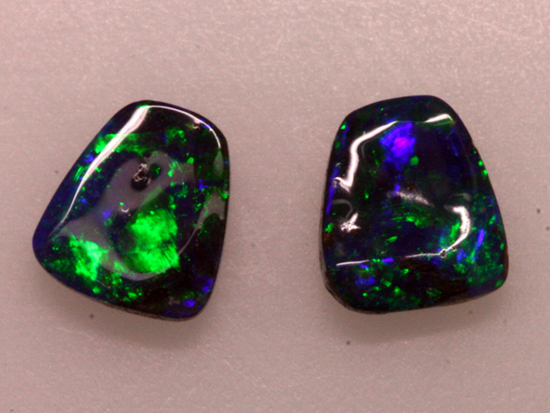
Boulder Opal Pair with Pinfire and Broad Flash, I-8992
Flash patterns display larger areas of play-of-color that often shift or change color with movement. Variations: Broad Flash, Rolling Flash, Exploding Flash, Ribbon, Rainbow.
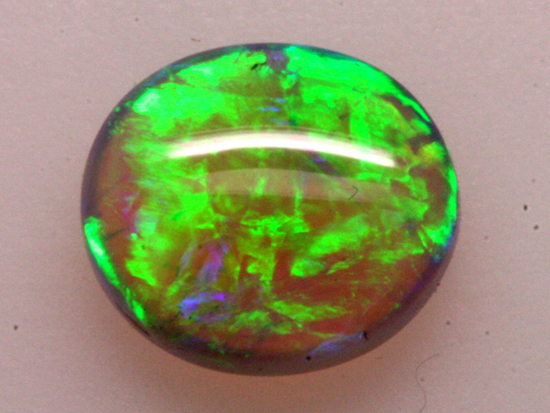
Broad Flash
Rolling Flash moves across the stone as the viewing angle changes or the stone “rolls.”
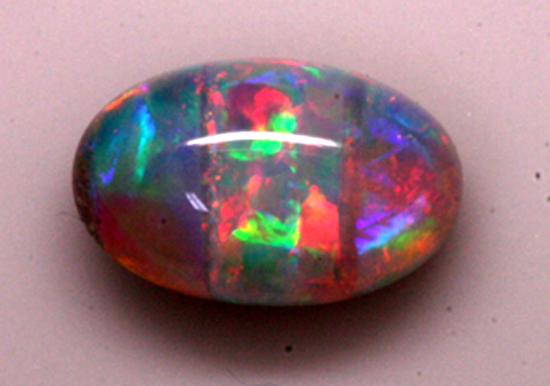
Rolling Flash, View 1
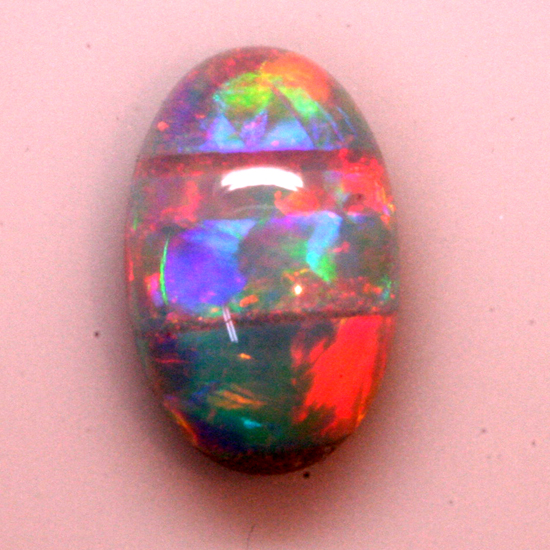
Rolling Flash, Mid rotation
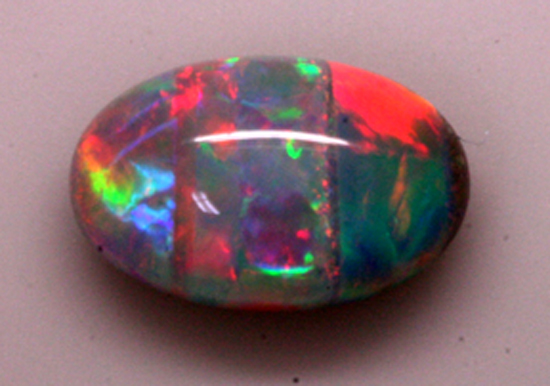
Rolling Flash, View 3- rotated 180 degrees
Sometimes, rolling flash will present itself as a streak or “lightning bolt”
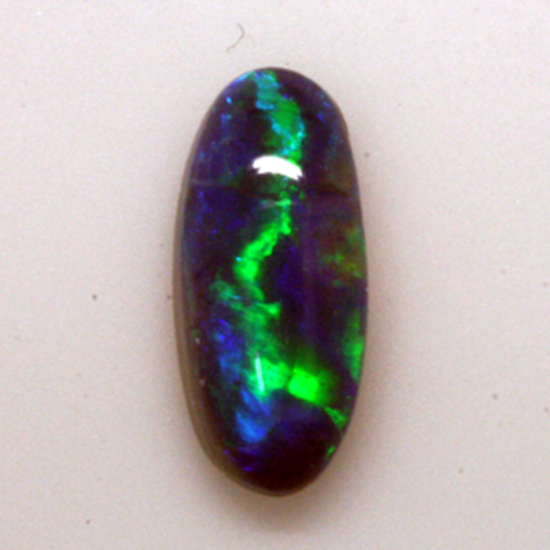
Lightning Bolt
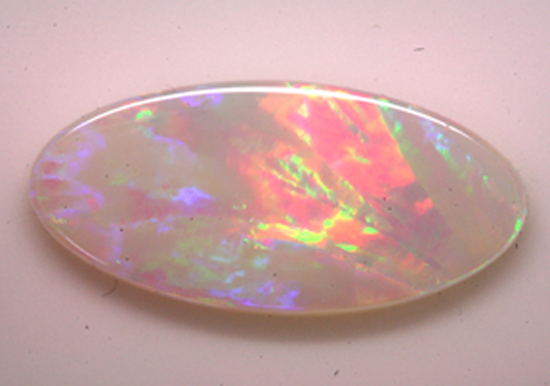
Ribbon pattern in Brazilan Opal
Harlequin patterns have large, distinct, and usually rectangular patches of play-of-color with edges that touch each other. Variations: Checkerboard, Flag, Fish Scale, Flagstone. The colors of the pattern may change with viewing angle.
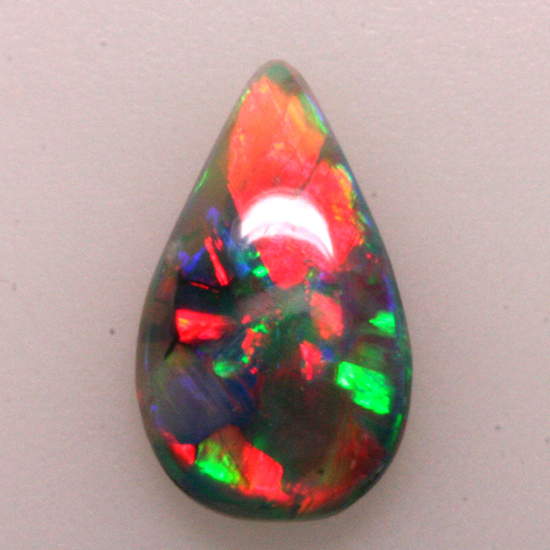
Harlequin Drop, Lightning Ridge Black
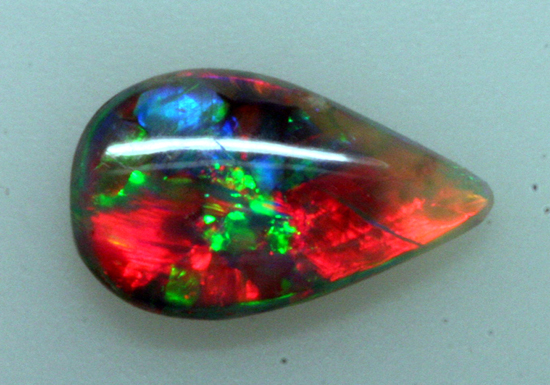
Harlequin Drop, View 2

Harlequin pattern in 7.75 ct. Lightning Ridge Crystal Opal
And finally, we occasionally find gems that speak to us in pictures or symbols. As a kayak fisherman, I have seen storm clouds and rain moving across the Sea of Cortez at morning sunrise– just as I see in this wonderful picture opal!
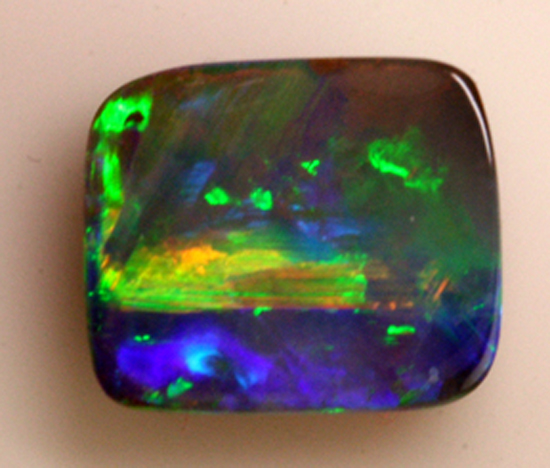
Baja Sunrise in Boulder Opal
Generally, the more dramatic the pattern, the more valuable. The more coverage of the face up appearance, the better. The more colors, the better, especially if the colors include a full spectrum, or lots of reds and oranges. And of course, the more brilliant the colors, the more rare and valuable the stone will be. The best opals have full coverage with interesting patterns of many colors, brilliantly displayed. For a full description of how opals are graded, visit our opal grading page, and view more fine opals in our Gallery of Gems.
Tags: Australian opal, black opal, boulder opal, Brazilian opal, harlequin opal, Lightning Ridge opal, opal fossils, white opal



